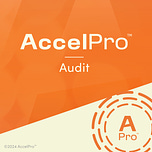Listen on Apple Podcasts, Spotify and YouTube
Welcome to the launch of AccelPro Audit. We provide expert interviews and coaching to accelerate your professional development. Today we’re featuring a conversation with Anita Chan, an Audit Partner at KPMG. Thank you for being a part of our community.
Companies looking to get started with ESG reporting and, potentially, assurance face a series of daunting obstacles, including a constantly shifting tangle of competing state, national, and even international regulations. Given this regulatory uncertainty, how should organizations get started?
Few are better positioned to answer this question than Anita Chan. She’s a partner at KPMG with a focus on ESG reporting, but she also spent two years as a professional accounting fellow within the office of the chief accountant at the SEC assisting with their rule making around ESG. She spoke to AccelPro Audit about steps companies can take now to get out ahead of ESG reporting requirements, how companies are navigating data challenges and her best advice for auditors interested in getting involved in the ESG space.
Listen on Apple Podcasts, Spotify and YouTube
Interview References:
Anita Chan’s KPMG profile.
2:44 | Sustainability Accounting Standards Board (SASB) Standards.
2:46 | IFRS S1 and IFRS S2, International Sustainability Standards Board (ISSB), (2023). International Financial Reporting Standards.
2:55 | Corporate Sustainability Reporting Directive (CSRD), (2022). European Commission.
7:21 | Big shifts, small steps: Survey of Sustainability Reporting 2022. (October 2022). KPMG.
Supplemental Materials:
Delouya, Samantha. A new rule requiring companies to disclose how much they pollute is coming in 2024. (2023, December 30). CNN Business.
Scope 3 Inventory Guidance. United States Environmental Protection Agency: EPA Center for Corporate Climate Leadership.
California Climate Corporate Data Accountability Act, SB-253, Ch. 382, (2023).
TRANSCRIPT
I. NO REGRET MOVES FOR COMPANIES AROUND ESG REPORTING
Jessica Stillman, Host: The global regulatory landscape around ESG is evolving very rapidly. There are many different frameworks and standards out there, which can be confusing. How should companies decide which of these standards to align around?
Anita Chan: You're absolutely right. The alphabet soup scenario seems to still continue in the ESG space. It went from a lot of voluntary frameworks to pick from, the GRI, the SASBs, to what's now more commonly referred to as the big three. There's the potential SEC final rule coming, there is the ISSB (International Sustainability Standards Board), which recently finalized their SS1 and SS2 standards, and then you have the European Commission with the CSRD that has recently been finalized as well.
So a lot to continue to watch, and I think what it boils down to is really, what we call interoperability. It's a keyword, especially if clients are in scope for one or more of those big three. How are they expected to reconcile those requirements and how could they really come up with a good reporting strategy that tells their story, and at the same time, comply with all the expected regulations? Some of it is still pending, but there are certainly, what I would call no regret moves that are good for companies to start thinking about either way.
One of them is starting with a common denominator. One of the good things I think we have seen across these big three standards is that they are all anchored towards, at least on the climate side, the TCFD (Task Force for Climate Related Financial Disclosure), as well as Greenhouse Gas (GHG), as the basis for what they're expecting and requiring. So as a starting point, we know that is the common denominator that companies could start preparing for and looking into.
The other thing that I think is important for companies to think about as they consider what reporting strategy they might need to employ is doing a very robust materiality assessment. I know that under the European regulation, some of you might have heard the requirement of double materiality, and that is slightly different from what US CPAs, especially, are traditionally familiar with, which is the investor materiality lens for financial statement auditing.
But thinking through that lens of what investor materiality might yield in terms of important topics, comparing them against what known requirements are in terms of the metrics that are being laid out either under the CSRD's ESRS regulation or under the ISSB, or on the other side, thinking about, from a stakeholder perspective, what that double materiality is thinking about beyond investors, what, from the company side, impacts the externalities of our social environment, our environmental situation—all those are important to keep in mind and then start coalescing around a picture of, ultimately, what are the material topics that should be reported against?
All to say, it takes some strategy. It takes some planning. It will not be a quick exercise, and I don't think there's one right answer to pick to start. Rather, it’s a holistic view of thinking about what's important to the company that will also satisfy the compliance requirements.
JS: Just to clarify, given that the EU standards are the most stringent, are there potential benefits for companies to proactively align with those international standards, even if maybe they primarily operate in the US?
AC: I absolutely think so. A lot of companies might think that the European regulations are more focused on European companies, but that's not the case. Entities that are headquartered in the US would still potentially be subjected to the EU CSRD reporting requirement if they meet certain thresholds in the EU. For example, having 250 employees, or having certain revenue or asset numbers in the European Union.
First of all, make sure you are aware whether you're officially in scope or not. And secondly, even if you're not in scope, I think it is important to go back to the point of a holistic view.
It's important to recognize that there is the intrinsic value related to E, S, and G as well. Oftentimes we hope for clients that are on this ESG journey to really take that into consideration not only, yes, obviously compliance is an important element, but more broadly, how do you strategically integrate a lot of this thinking into your actual business? What would bring the intangible value as well as help you decide on what's the best story in terms of strategy for reporting?
—
II. ON DEALING WITH DATA CHALLENGES
JS: That's a lot to think about, but it's only actually part of the ESG journey, right? Because once you’ve determined your reporting strategy, there's other things to consider. One of those is data. So can you talk to me a little bit about what are the biggest data challenges and how are companies dealing with them?
AC: Anytime we talk about ESG, that's something that comes up, and I think it's important to make a little bit of a distinction. KPMG did a survey in 2022 where they looked at the top 100 US companies and they found that over 96 percent of them have some form of ESG-related reporting. So there is data that enables such reporting. The challenge is the quality of the data, as well as the level of granularity that might be needed for potential future regulatory reporting or storytelling expectations.
Can I rely on a lot of the data that might be scattered across many sources or platforms from websites to other companies' ESG reports? And how do you synthesize it into something that's digestible and you feel confident about using for your own reporting?
Some of it is going to come down to building out some sort of processes and controls and policies to govern what good data looks like. It's not an easy lift. It's not like a magic bullet out there that could say, ‘Oh, this is how you could easily collect all the data that you need,’ especially, for example, a hot topic in the greenhouse gas emission space, which is scope three. It involves collecting data from upstream and downstream, ranging from your customers to your suppliers and vendors. Well, how are you going to do that, especially for a larger corporation? A lot of it comes down to that consistency, thinking about having a robust data management program to put in place.
And I think CPAs especially are in a unique spot for that because we do have experience in that space, even though it might not be explicitly ESG data. We have that knowledge from financial statement reporting. Currently there is a certain level of rigor, of how do we garner and collect financial reporting type information that would be compliant with investors' expectation as well as regulators such as the SEC? There's a lot of lessons to learn there. What we have been starting to observe is companies start to use those lessons and experience in data management of financial reporting, and translate some of that, to the extent it makes sense and it's relevant, for ESG data. Now, certainly, you can't put a square peg in a round hole, but there's a lot of synergies and analogies there that you could learn by leveraging that existing knowledge.
Ultimately, don't forget, in this day and age, about technology. Technology solutions and platforms are emerging in this space. I would say that there certainly isn't a silver bullet yet that would get you to what we like to call, and I think many clients are looking for, the single source of truth. How do I collect all the data in one system platform that I could generate a report that would enable me to do analysis and review like current days of a general ledger? Unfortunately, I don't think we're there yet. As technology evolves, many of our clients are evaluating the options that might be out there that are most suitable for what they're trying to achieve in terms of the reporting.
So I would definitely say, start sooner rather than later. It takes time to build the process. I would say also, back to our earlier point about materiality, do some sort of prioritization. You cannot make sure all the data related to all your ESG metrics that you might be reporting on is at the highest level of integrity from a process and controls perspective for data quality, but perhaps there is a common denominator of greenhouse gas emission. Maybe start there. Start looking at your greenhouse gas data collection processes, and then help refine it to get to a point where you have confidence around the quality of the data.
JS: I really want to dig into that concept of controls and processes, which you've mentioned a couple of times. How do you start building those controls and processes right now when there is so much uncertainty? And who should be involved in that effort?
AC: I like to say, start small and start now. If you think about greenhouse gas, it might be a priority topic you typically have control over so that you can get that data in a more efficient, effective way as compared to Scope 3, where you have to seek out from other third parties what that data potentially might be. So as a starting point, we've always suggested to clients, start closer to home. Then, leveraging the financial reporting system and what processes and controls you already have in place, how do you think about reconciliation of completeness and accuracy of data to what audit trail you might have?
One of the interesting things that many clients have come to realize, and we have observed as advisors, is, because of the fragmentation of where the data is coming from in the ESG space, many of those data owners, even within the company currently, don't have experience or exposure to controls or the financial reporting equivalent rigor, to say the least.
They are a bit uncertain as to, what are you looking for from me? Like, this is my Excel spreadsheet. Here is the data. What more do you want? So I think it's certainly not something that could be done in silos. Having that interconnectivity and internal knowledge shared between the operational folks who have the data and internal audit, or the financial reporting group—how do you sync up and have that common understanding of the expectations and then progress towards that vision together?
What we have been observing is some companies, especially larger organizations, are starting to put together a best practice, cross-functional task force. And I think it's helpful to facilitate that dialogue. Voices, experience, and expertise being represented across the organization, ranging from those on the operational side or the supply chain side to legal, or within finance or even from investor relations or human resources or technology and internal audit—they all bring valuable input into how best you collect the data and build a process that could be effective and efficient to yield an outcome that's desired.
Last but not least, I'll just have to make a plug for this because I feel like many people talk about ESG and they focus so much on the E and even the S, but they so often forget about the G, governance. Especially companies building out their controls and procedures, you cannot forget about the governance. Who is ultimately going to provide the oversight of the data? Who's going to own and hold people accountable for having quality, reportable data related to ESG?
JS: I hear your point very strongly about having these cross-functional teams, but whenever you have such big teams, obviously there are coordination and communication challenges. Do you have any advice on how the best teams are working well together? Any best practices you've seen in terms of that coordination and communication?
AC: We are starting to see some companies, especially larger organizations, put in place this ESG controller, which is a new role that many have introduced to oversee the task forces that I mentioned earlier. And by having that sort of reporting channel, that helps synthesize a lot of the messaging, a lot of the coordination.
I also think a lot of companies are starting to put together this mentality and culture around, ‘everybody is really trying to do this for the greater good.’ So it isn't necessarily needed to have a fight around whose voices should be louder. Breaking down the silos, having transparency, and having the common goal, are the most helpful best practices that I have seen to date in terms of actual execution by clients.
JS: I know that it's not a requirement for companies yet to get their ESG data validated or get some sort of outside assurance on that, but where are we in terms of the number of companies engaging external auditors to validate ESG data? How is it trending in terms of the demand for this sort of thing?
AC: We definitely see an uptick in it. In the global survey that I mentioned earlier, KPMG found that about 40 plus percent of the top hundred US companies by revenue already include or reference some form of assurance over their ESG report or information.
Now, certainly the service provider of that percentage is fragmented. There is some data out there that analyzes the service provider split between CPA and non-CPA. It's quite interesting to see, in the US market at least, that non-CPAs are having a bigger market share of ESG attestation, which contrasts to the international landscape where we have seen, especially in Europe, most of the ESG attestation services provided by the financial statement auditor for the same company.
When you ask about the trends and predictions looking ahead, I do see a lot of opportunities and synergies in that space where financial statement auditors could certainly bring value as companies look to a potentially required assurance requirement. We know that EU CSRD has that component in it, so US companies that are in scope for CSRD will have to comply with it. In terms of pending regulation, the SEC proposal mentioned that. The California bill also includes an element of assurance requirement.
So I think it's going to be a growing trend, even before all the official regulations potentially kick in. And I think it's important as CPAs, when we have the dialogue with the client, for us to let them know that we do bring value in understanding their businesses as their financial statement auditor. We have a certain level of expertise in terms of how to execute an assurance engagement, how to coordinate and provide comfort or understand estimates, assumptions, all of these are still very much relevant components of ESG reporting.
The other thing to think about as well is, probably there's no better way, in my opinion, to get more comfort over the quality of your data than having it go for an external assurance requirement. Ultimately for companies, once they build out their processes and controls and get to a point where they have a data collection management program that they feel comfortable with, they really should seek out and work with a service provider, especially like CPAs, to consider getting the ESG data validated through limited assurance as a starting point, which is what we're seeing now, and eventually work towards potentially reasonable assurance as well.
—
III. WELCOME TO THE CLUB: ADVICE ON A CAREER IN ESG
JS: This is a growing a field for CPAs, so I'm sure there's auditors listening who are wondering how you got into ESG and what's this career path like? I want to pivot to talk about your career and how you got where you are today. Can you give us a little bit of your background on how you ended up in this particular role?
AC: It's certainly exciting because, when I joined the profession 15 years ago, I would have never thought that today I would be an ESG auditor. A lot of it, I would have to say, is attributable to great coaching along the way that helped me see what potential skill set or opportunities there are that helped me get to where I am today.
For example, I was casually talking to a mentor of mine who actually is the US audit ESG leader, and I was a newer manager and I said, ‘Hey, many companies are starting to come out with the CSR report.’ Goes to show how long ago that is. It was before ESG was actually a term. And I said, ‘Do we do anything with the companies over them? Because it seems like there are numbers in there. We're auditors. We know how to look at numbers. So why aren't we involved?’ And she was like, ‘Actually we're very much exploring it.’ And she brought me under her wing and gave me the opportunity to work on one of the firm's very first engagement related to greenhouse gas attestation, where the company was one of the leaders in the space and looking to get assurance over a decade ago at this point.
Because she was willing to give me the opportunity and both of us navigated together in a new territory, that gave me the credentials and skillset that, when I went to the Securities Exchange Commission as a professional accounting fellow not too long ago, I was one of the few that had the experience in terms of practical ESG attestation. Plus, understanding accounting, having that financial statement, auditor background, I was able to contribute and be a part of the rulemaking team, which was an invaluable experience.
JS: You were a professional accounting fellow within the office of the chief accountant at the SEC from 2020 to 2022. What insight did you bring back to your work at KPMG from that experience?
AC: It was such a phenomenal experience. It really gave me a new appreciation in terms of public service and our commitment in this profession of protecting investors. Working there and interacting within the commission, I really got a sense of what the bigger picture looks like, meaning I have an appreciation of how the financial reporting ecosystem actually works, all the different stakeholders, the role that they play, and in particular, how important the role of CPAs are within the capital market.
I was in a unique spot and had the opportunity to participate in a rulemaking activity, and I would have never thought I would be able to potentially contribute to a historical, accounting-related regulation in our country. It's quite impressive to experience that and see the process and the rigor that it goes through and all the people that provide their knowledge, expertise and skill set and how it all comes together.
It's such a complicated process, and there's certainly challenges to it, and that really heightened my appreciation of the infrastructure that we have here in the US capital markets, which is, I think, one of the top in the world.
JS: What advice would you have for other auditors on the career development side, specifically if they are interested in moving towards this ESG space?
AC: I would say, ‘Welcome to the club. Definitely glad to hear that you're excited about ESG.’ Don't be shy. It could be daunting in a sense that ESG is a vastly evolving space and it seems niche at times, but don't shy away from that. Really focus on one step at a time from upskilling and thinking about certain specific areas that might be of most interest to you.
We talked a little bit about assurance. There is certainly the advisory side. There's also the data preparation side as well as ESG reporting. ESG is such a vast topic, just like how, as a CPA, you can be contributing in very different ways within the profession.
Maybe then start looking within the skill sets that you already have. There are a lot more similarities and synergies than one might think about when you talk about, ‘I'm just an auditor’ versus some ESG professional. There is definitely a need in the ESG space for those who can speak to both the ESG side as well as the financial accounting and reporting side.
So don't be shy, and reach out and talk to others who are starting to be more involved in that space. I'm a strong believer in owning your own career and collecting, one step at a time, the right skill set that leads you to unexpected doors that might open in front of you.
This AccelPro audio transcript has been edited and organized for clarity. This interview was recorded on September 13, 2023.
Listen on Apple Podcasts, Spotify and YouTube
AccelPro’s interviews and products accelerate your professional development. Our mission is to improve your day-to-day job performance and make your career goals achievable.
Send your comments and career questions to questions@joinaccelpro.com. You can also call us at 614-642-2235.
If your colleagues in any sector of the audit field might be interested, please let them know about AccelPro. As our community grows, it grows more useful for its members.












